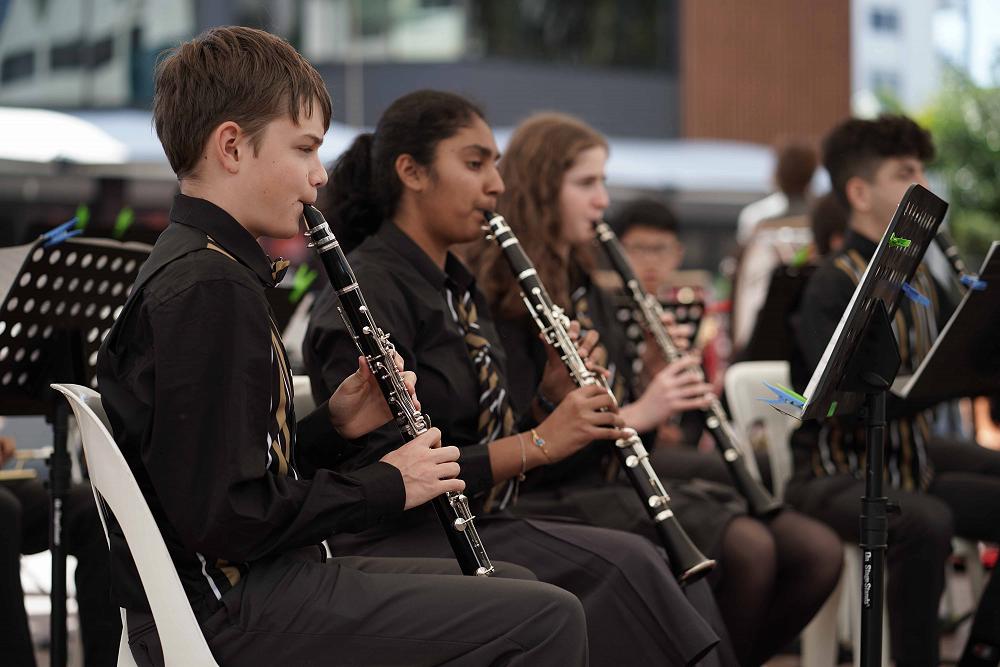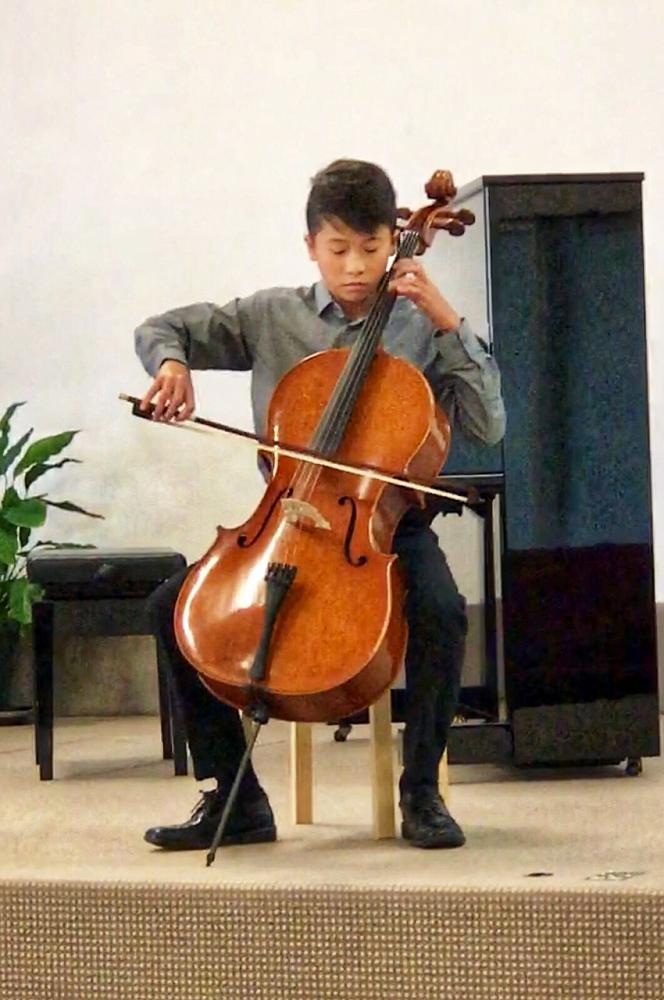
Music and academics - a harmonious pairing
One of the principle goals of our school is to push the young people who pass through our gates ‘out of their comfort zone’. It is often said that we learn more from our failures than we do from our successes. In focusing on our strengths and staying within our comfort zone, we don’t really push ourselves, and we are hence, less likely to experience failure. Out of our comfort zone, we have to exhibit greater determination and courage, and we have to often deal with the challenges of disappointment and not initially achieving the goals we have set for ourselves.
Currently, our year 9 boys are leading the school in morning worship on Tuesday and Thursdays (i.e. delivering scripture readings, sermons or prayers from the pulpit). For many of us, we find public speaking extremely challenging. But we find the more we do it, the more comfortable it becomes, the less fear we have of addressing large groups of people. Nervousness in such situations is natural, but overcoming our fears builds character and self-confidence.

There are a huge number of examples of challenges for our comfort zone at St Paul’s in Hamilton and particularly down at our Tihoi campus – living away from home as a boarder or as a Tihoi intake member; undertaking an outdoor challenge such as rock-climbing, white water kayaking or caving; pushing ourselves and overcoming difficulty in a subject that we don’t feel really comfortable with, such as writing or mathematics; the list goes on.
One of the special ways that many of our students are pushed outside our normal level of comfort is through embracing cultural activities; learning and speaking another language such as Te Reo; singing in a choir; performing the Haka in the house competition; getting up on stage and dancing, acting or singing, or learning to play a musical instrument.
In recent months with the inter-house choir and haka festivals, house solo or group musical competition, the Aspire Music Tour to Australia, the school musical production of Grease and the Good Vibrations concert, we have seen a huge number of our musicians and house members push themselves hard for either personal satisfaction, the glory of their house’s success, for “the buzz” of producing good quality music with a group of others, or living out their dream to act on a stage in front of an audience.

Research was recently published in the Journal of Educational Psychology, looking into how musically gained skills can help with learning in other fields. While from a parental perspective, listening to your child or teenage belt out an unrecognisable beat on the drums may not be good for household harmony, the new research showed that it may be worth it academically in the long run. Encouraging young people to master an instrument can help them to perform significantly better in subjects such as science and mathematics as they get older. Learning to become proficient with an instrument is not easy and is full of disappointments and at times, failures. But hard work and perseverance are significant influences in character development and personal growth. The challenges are many; mastering an instrument requires learning to read musical notations, developing specific hand-eye-mind coordination, balancing time to dedicate to practice, working on their listening and performance skills. For many parents (and even some teachers), music is not viewed as a serious pursuit compared with subjects such as English, mathematics and science.
However, a study of 112,000 Canadian students who started their schooling between 2000 and 2003, followed their academic achievements all the way through to year 12 in high school (the equivalent to year 13 in New Zealand).
Controlling the data for demographic factors including gender, ethnicity, socioeconomic achievement and prior achievements in previous subject examinations in year 7, the researchers were interested in identifying which factors seemed to help students to perform at their best.
"Looking at factors that correlate to higher academic results in maths and science, the researchers found that the students who learnt an instrument during childhood and developed enough mastering to perform as a group exhibited significantly higher academic performance. Specifically, students who in year 10 and above, who signed up to play in music groups, like an orchestra, jazz band, concert choir, vocal jazz and conservatory piano showed the most academic advantage; resulting in higher exam scores across all school subjects. The results were even stronger for those who specialised in instrumental music studies (rather than vocal music groups, such as choir), with these students being around one full year ahead in learning than their non-musical peers." - Dr Michelle Dickinson
This research is a huge endorsement for our approach to having made it compulsory for our year 9 students to learn a musical instrument. The challenge is, how do we encourage them to continue with the discipline of mastering an instrument and foster their involvement in bands and musical groups?

Many of us, as parents, have little or no musical acumen ourselves, but should we allow this to act as a discouragement to our teenager’s involvement? For teenagers to challenge ‘their comfort zone’, at times, they may need encouragement and coercion. Certainly, in the case of learning a musical instrument, there is strong research pointing to the academic side benefits for all their hard work practising and performing (and the odd headache and earache it may attract in the home).



